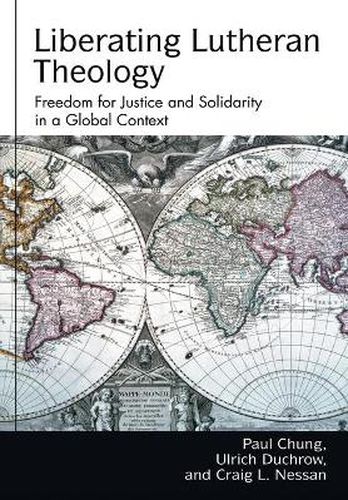Readings Newsletter
Become a Readings Member to make your shopping experience even easier.
Sign in or sign up for free!
You’re not far away from qualifying for FREE standard shipping within Australia
You’ve qualified for FREE standard shipping within Australia
The cart is loading…






Spanning the continents, three internationally respected theologians demonstrate how the thought and legacy of Martin Luther can serve in an ecumenical and interfaith context as a resource for a radical critique of global economics and culture.
Lutheran Christianity originated in its own era of economic and cultural crisis. One of the great misinterpretations of Martin Luther has considered his heritage as fundamentally reactionary, seeking to preserve the political status quo. Instead, set free by the biblical message of liberation, this book wields Luther’s theology to engage the reality of poverty, hunger, oppression, and ecological degradation caused by an imperial capitalism as the most urgent theological issues in the contemporary world. The volume demonstrates the liberating possibilities of theology done out of a biblical and Lutheran perspective for the economic and cultural crises facing the church in the present century.
$9.00 standard shipping within Australia
FREE standard shipping within Australia for orders over $100.00
Express & International shipping calculated at checkout
Spanning the continents, three internationally respected theologians demonstrate how the thought and legacy of Martin Luther can serve in an ecumenical and interfaith context as a resource for a radical critique of global economics and culture.
Lutheran Christianity originated in its own era of economic and cultural crisis. One of the great misinterpretations of Martin Luther has considered his heritage as fundamentally reactionary, seeking to preserve the political status quo. Instead, set free by the biblical message of liberation, this book wields Luther’s theology to engage the reality of poverty, hunger, oppression, and ecological degradation caused by an imperial capitalism as the most urgent theological issues in the contemporary world. The volume demonstrates the liberating possibilities of theology done out of a biblical and Lutheran perspective for the economic and cultural crises facing the church in the present century.